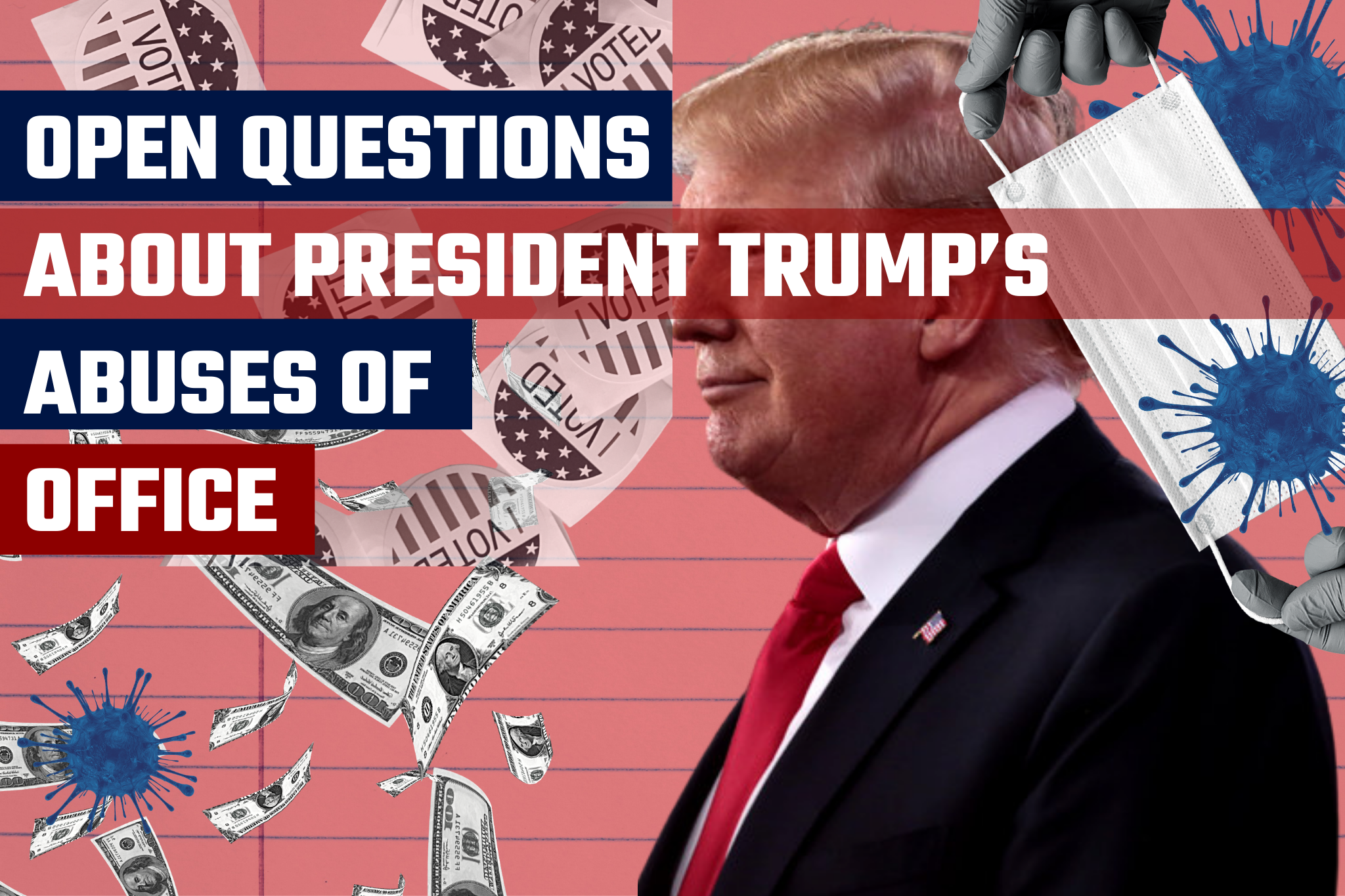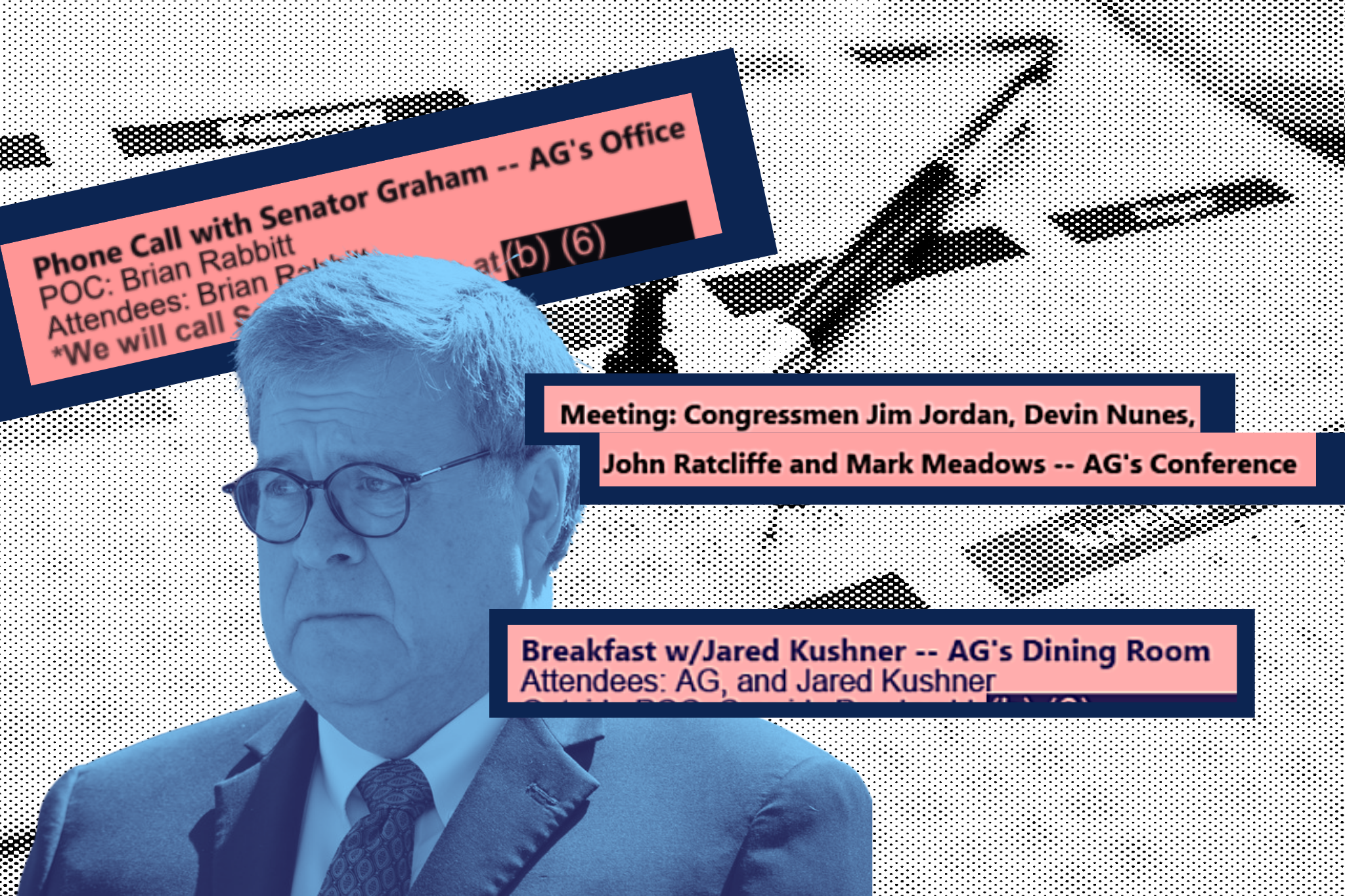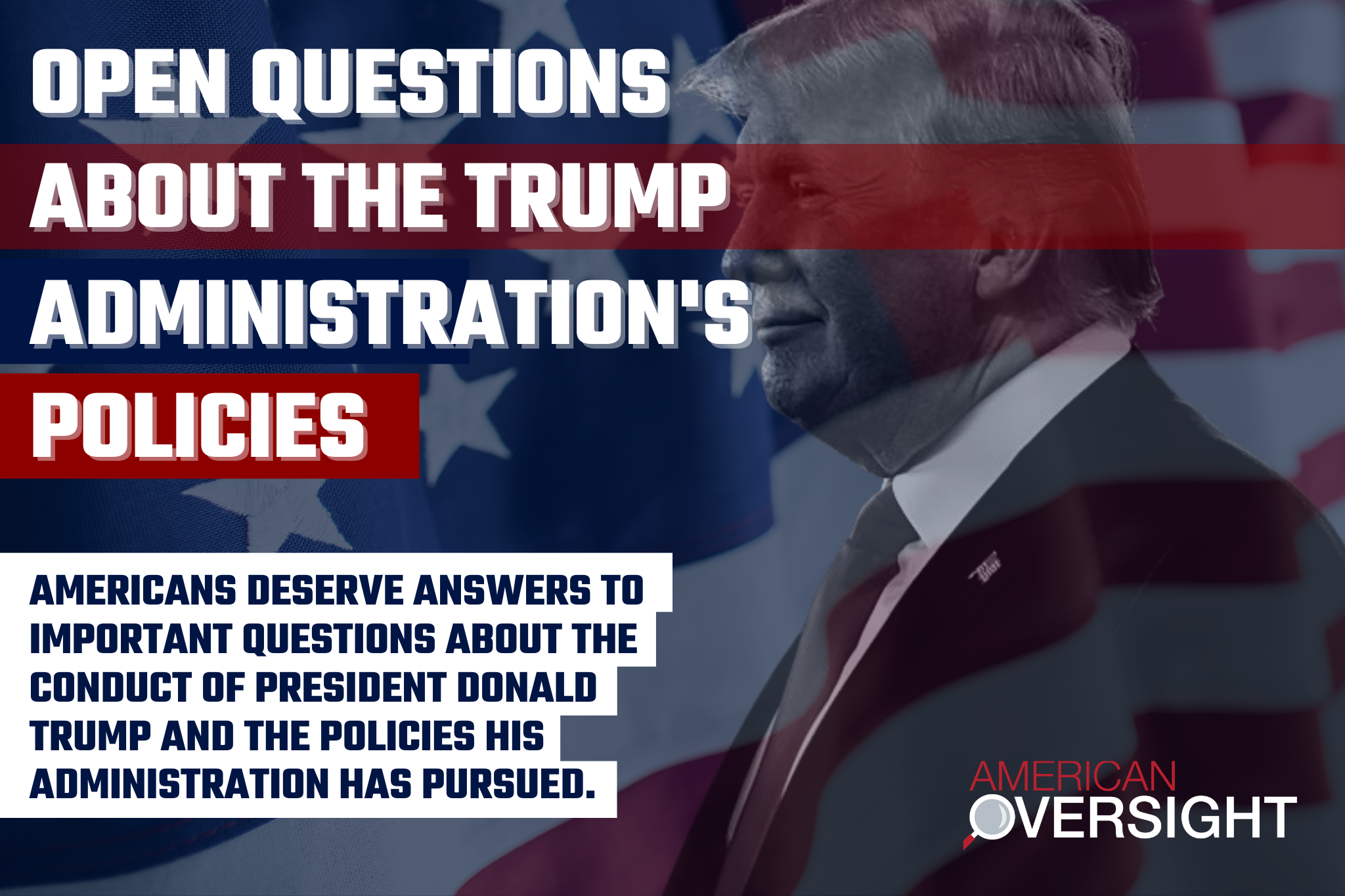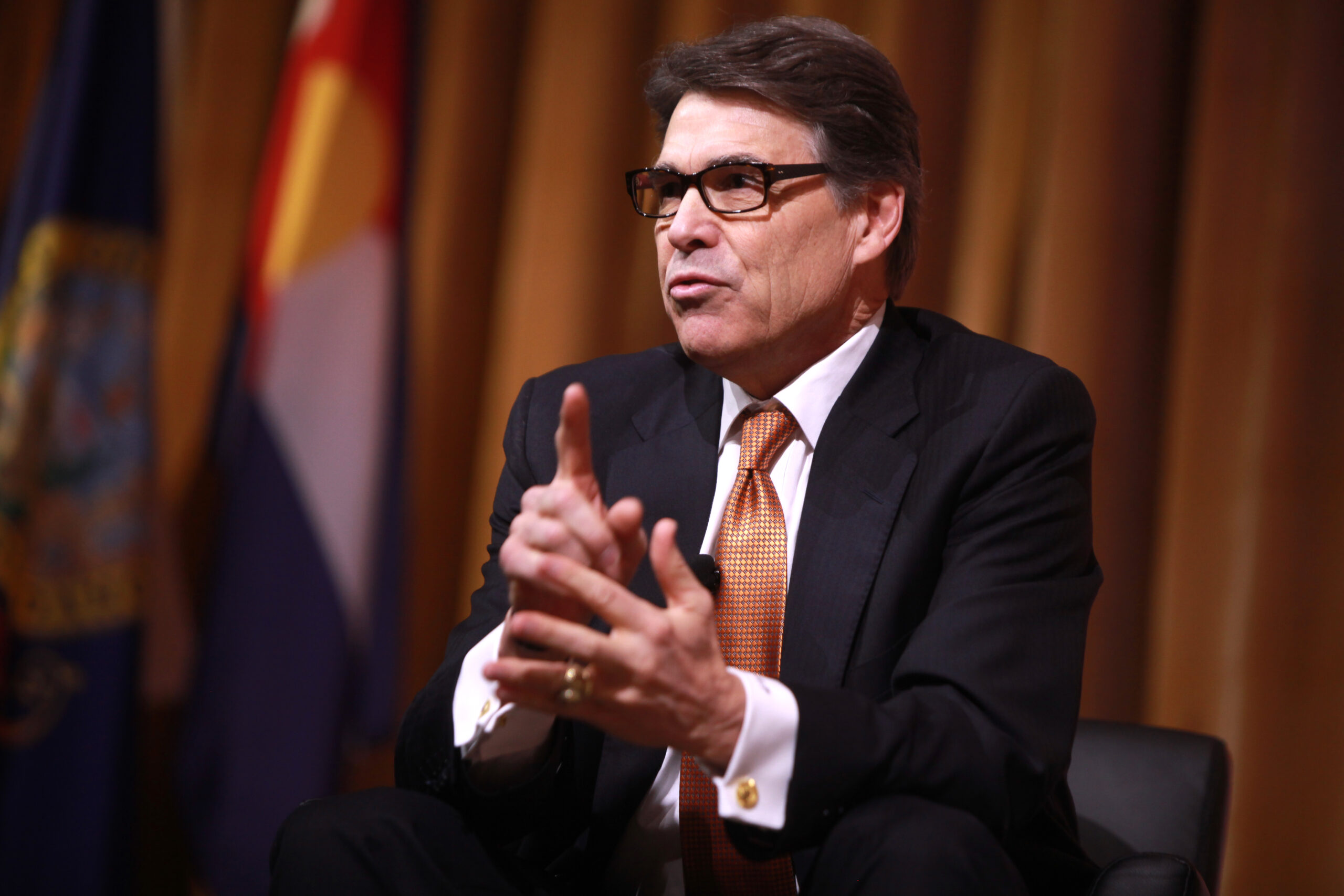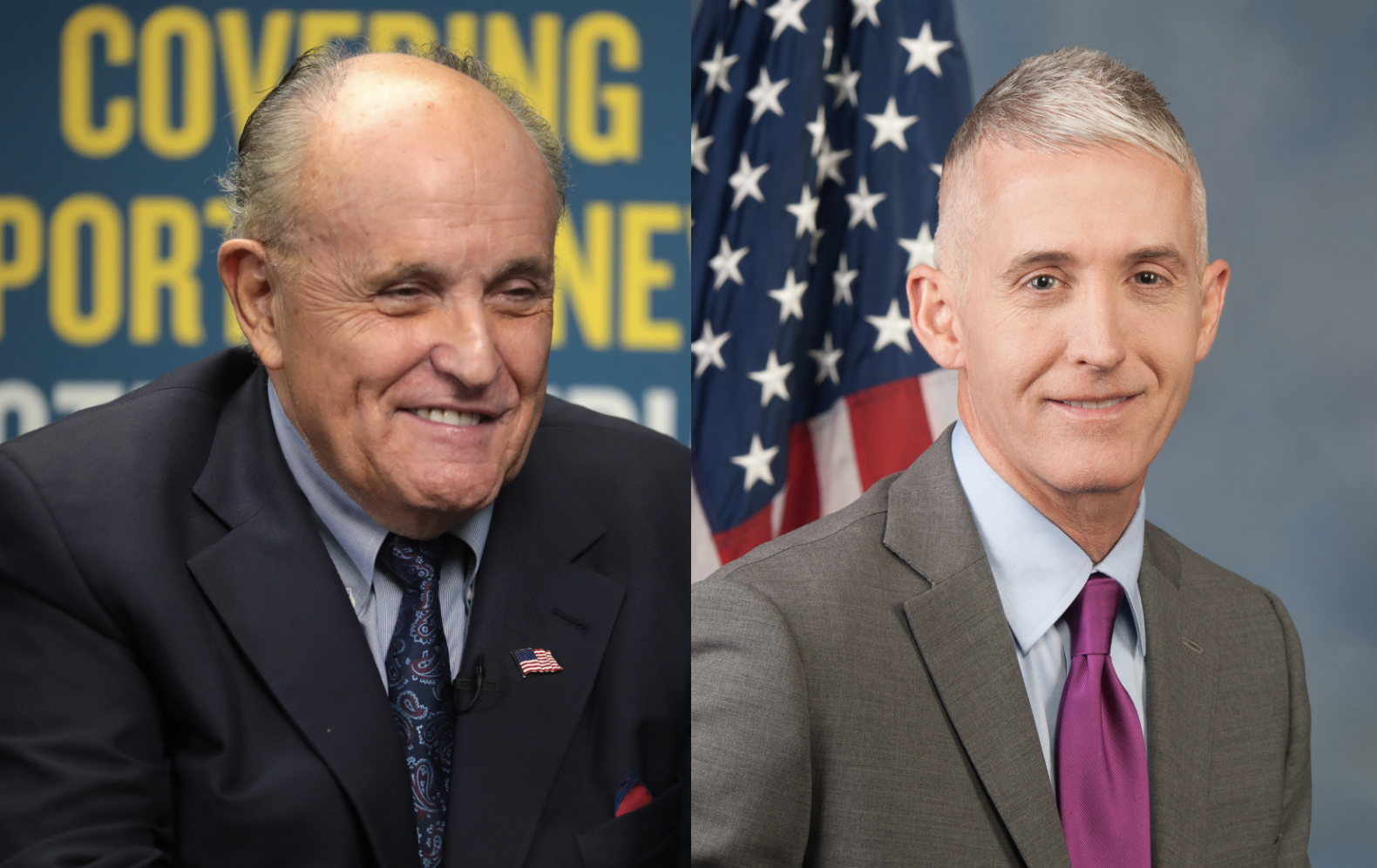
The Trump Administration’s Contacts with Ukraine
American Oversight is investigating the extent of the Trump administration’s troubling efforts to coerce a foreign government into helping to attack the president’s perceived political enemies.

Background
In September 2019, the Trump administration’s refusal to turn over to Congress an intelligence whistleblower complaint led to extraordinary revelations that former President Donald Trump had allegedly urged Ukrainian President Volodymyr Zelensky to investigate the son of former Vice President Joe Biden — a week after ordering the freeze of military aid to Ukraine. Equally concerning were unabashed claims from Trump lawyer Rudy Giuliani that he had made similar efforts in talks with Ukrainian officials.
Giuliani had announced in May 2019 that he would travel to Ukraine to urge the government to investigate Hunter Biden’s involvement with a Ukrainian energy company as well as allegations (for which no evidence exists) that Joe Biden, then a potential 2020 Trump opponent, had played a role in the Ukrainian government’s dismissal of a prosecutor. The trip was canceled after widespread criticism, but Giuliani defended his actions by saying, “We’re not meddling in an election, we’re meddling in an investigation.” Before the announcement of the canceled trip, the State Department recalled the U.S. ambassador to Ukraine, who had been under attack in conservative media for purportedly criticizing Trump in private conversations.
Later that summer, however, the New York Times reported that Giuliani had renewed his efforts, secretly talking to Ukrainian official Andriy Yermak. After news surfaced of the whistleblower complaint involving Trump’s communications with Zelensky, additional reporting revealed that in mid-July Trump had ordered his acting chief of staff, Mick Mulvaney, to withhold Ukraine’s military aid. The Office of Management and Budget (OMB) had subsequently instructed the Defense and State Departments to freeze the aid.
While Trump seesawed with his explanations about why he had withheld the $400 million, Giuliani wasted little time before appearing on cable news to admit that he had asked Ukraine to investigate Biden. Meanwhile, the State Department confirmed that it had assisted in connecting Giuliani with Yermak, a fact Giuliani boasted of on Fox News: “I was operating at the request of the State Department.”
On September 25, the day after Speaker Nancy Pelosi announced that the House of Representatives would open an official impeachment inquiry into the president, the White House released a summary transcript of the call, which showed that Trump said he would direct Attorney General William Barr and Giuliani to call Zelensky. “I will have Mr. Giuliani give you a call and I am also going to have Attorney General Barr call and we will get to the bottom of it,” the transcript said. The transcript also showed that Trump discussed the U.S. ambassador to Ukraine, Marie Louise Yovanovitch, who had been recalled in May: “The former ambassador from the United States, the woman, was bad news and the people she was dealing with in the Ukraine were bad news so I just want to let you know that.”
The president’s actions constituted a dangerous violation of criminal law. The Trump White House’s blanket obstruction of all legislative oversight continued into the impeachment inquiry, with the order for administration officials not to comply with congressional requests. While some officials joined in Trump’s stonewalling, many others lined up to provide testimony to Congress, including Yovanovitch, Gordon Sondland, Kurt Volker, and Bill Taylor. Meanwhile, American Oversight continued its own investigation, seeking records from multiple federal agencies that could shed light both on Giuliani’s contacts with the Ukrainian government and on the president’s potential freezing of congressionally approved military aid in an attempt to influence the upcoming 2020 election.
Litigation
On Oct. 1, 2019, American Oversight sued the State Department for records of communications with or about Giuliani and his efforts, as well as for records related to the recall of U.S. Ambassador to Ukraine Marie Yovanovitch. The public’s urgent need for answers led American Oversight to file a motion for a preliminary injunction on Oct. 4 to compel the government to immediately begin processing and producing documents. On Oct. 25, a federal judge ordered the State Department to begin producing records by Nov. 22, and a week later the court ruled that the agency must also search for and produce records of readouts or summaries of the July 25 call. On Nov. 22, the State Department produced records showing March 2019 calls between Pompeo and Giuliani, and an email in which Trump’s personal secretary helped put Giuliani in touch with Pompeo.
On Oct. 12, 2019, American Oversight sued the State Department for emails sent by Secretary of State Mike Pompeo or other senior officials referencing President Trump’s personal lawyer Rudy Giuliani, 2020 presidential candidate Joe Biden, or Ukrainian-born businessmen Lev Parnas and Igor Fruman. The lawsuit also sought the calendars of former Ukraine special representative Kurt Volker and his communications with Giuliani.
On Oct. 22, 2019, American Oversight sued the Department of Energy for records of Secretary Rick Perry’s May 2019 delegation to the inauguration of Ukrainian President Volodymyr Zelensky. The lawsuit also seeks records from Perry and Deputy Secretary Dan Brouillette including communications with Giuliani, details of Perry’s other meetings with Ukrainian officials, and correspondence with key individuals and entities associated with the effort to pressure the Ukrainian government.
On October 25, 2019, American Oversight sued the Office of Management and Budget for records related to the Ukraine effort, including: copies of directives or decision memos regarding military or other aid to Ukraine; communications with Congress about the aid funding; and emails sent by Director Mick Mulvaney and other senior officials referencing a list of terms relating to the aid program, Hunter Biden, or Trump lawyer Rudy Giuliani. On November 7, this lawsuit was amended to add several FOIAs filed with the Department of Defense seeking related records.
On Nov. 8, American Oversight filed a lawsuit against the State Department for records of Sondland’s communications with Giuliani and Giuliani’s associates, or about the efforts to pressure Ukraine. The lawsuit also seeks Sondland’s calendar entries.
On Nov. 25, American Oversight sued the Department of Justice for communications between agency officials and the president’s personal lawyers, including Rudy Giuliani, as well as Ukrainian officials. The lawsuit also seeks DOJ communications about the effort to pressure the Ukrainian government to investigate Trump’s political opponents.

